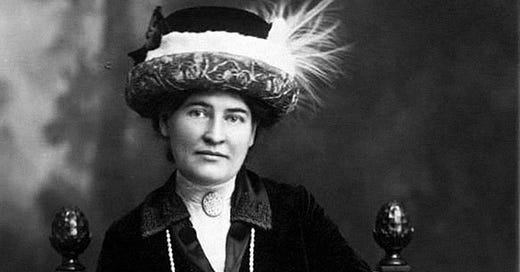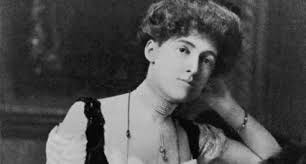It’s #Women’sHistoryMonth and to my mind, there is no better measure of women’s lives than in the stories and novels penned by women.
Edith Wharton and Willa Cather, standouts.
Wharton, who shocked readers in 1905 with the ruthless Lily Bart in The House of Mirth, and the first woman to win the Pulitzer Prize, 1920, for The Age of Innocence, published forty books in forty years, including writings on architecture and design.
She shocked readers again with the novel The Custom of the Country featuring the desperate and odious Undine Spragg, whom some suggest, given the initials US, was a parody of America’s colonialist persona.
But I have sometimes thought that a woman’s nature is like a great house full of rooms: there is the hall, through which everyone passes in going in and going out; the drawing-room, where one receives formal visits; the sitting room, where the members of the family come and go as they list; but beyond that, far beyond, are other rooms, the handles of whose doors perhaps are never turned; no one knows the way to them, no one knows whither they lead; and in the innermost room, the holy of holies, the soul sits alone and waits for a footstep that never comes. [The Ghost Stories.]
Willa Cather, who also published non-fiction as well as poetry, in addition to twelve highly regarded novels, also early 20th century, also won the Pulitzer, 1923, for a lesser known work, One of Ours. Her characters, humanistic, more pliant, nonetheless struggled to achieve some manner of standing in an inhospitable environment.
We come and go, but the land is always here. And the people who love it and understand it are the people who own it. [O Pioneers!]
Both writers advanced literary social realism, with women’s struggles at the core, in the footprints of their Victorian predecessors: Jane Austen, Sarah Orne Jewett, Kate Chopin, Mary Wilkens [with whom Wharton had a lifelong correspondence] and their UK compatriots, the Brontës, Elizabeth Gaskell and George Eliot [nee Mary Ann Evans] whose Middlemarch remains perhaps the paragon of the genre.
[And these evolved to the stream of consciousness feminist fictions of Virginia Woolf.]
Wharton, writing largely of the Golden Age and largely in NYC, focused on urban privilege, the jockeying for position in society as well as personal freedom. Wharton’s characters, despite status by virtue of birth or marriage, frequently resorted to manipulation [psychological, emotional and sexual] for the sake of self-preservation as well the determination to achieve higher stature.
She was like some rare flower grown for exhibition, a flower from which every bud had been nipped except the crowning blossom of her beauty. [The House of Mirth]
Cather’s characters more often settled for capitulation, more like the rural landscape, a stoicism mastered by pioneers and immigrants populating the post-industrial revolution heartland. [Nebraska, Kansas, etc.]
There are some things you learn best in calm, and some in storm. [Song of the Lark]
Wharton is a great favorite of mine. Her great insight into the dynamics of relationships, the push-pull between individual rights and societal norms, as well as the elegance of her prose, are one of a kind. Never more so than in Old New York, a collection of novellas I read only recently, spanning the decades from 1840 – 1880, which depict the nearly Herculean challenges women faced to survive or prevail. I do also especially admire Cather’s My Antonia, which I hope is still on school reading lists, and which exquisitely captures a time and place, and lifestyle, hard to imagine.
Keep in mind that until American women earned the vote in 1920, and while most other rights withheld until the modern feminist movement of the 70s, women had near zero rights. Raised to be domestic, or to serve domestic living, they were not allowed to own land or maintain their own bank accounts or financial resources, most were denied the right to earn an advanced education, much less become professionals, and lacked even the dominion over their own children – an angry husband could file for divorce and take the children and women had no recourse. Wharton and Cather, among others, used this to reveal the universal truths best revealed in fiction.
So, when we talk about women’s rights, yes, we’ve come a very long way, but faced with the current cultural and political regression, reading these works may provide valuable blueprints. At best, they will rekindle passion for freedom, beyond the pleasure of great writing.
Cheers.






I just love Edith Wharton’s style — so gorgeous. I didn’t know that fact about Undine & the US! Checks out 😂
I will have to add Willa Caher to my tbr. Thanks for the rec!